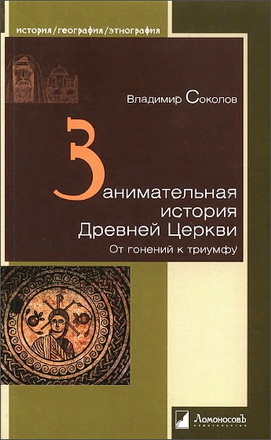
Lockyer - All about the Holy Spirit
Herbert Lockyer - All about the Holy Spirit
Peabody, MA: Hendrickson Publishers, 1995. – 256 p.
eBook ISBN 978-1-61970-675-0
Religious teachers and writers are impressed by the fact that Christians everywhere desire a more comprehensive knowledge of the person and work of the Holy Spirit. It may be that a sense of need and insufficiency cause many to inquire. They want to understand how the Spirit’s fullness can be received and retained.
In many cases, misconceptions concerning the Spirit and ignorance of His work are responsible for weakness and ineffectiveness in Christian life and labor. If only the Spirit could come into His own, lives would be rich in fruitfulness and fragrant with the perfume of Christ. By realizing all that the third person of the Trinity has for us, facts of promise could become factors of power.
Approaching the theme before us, sublime and sacred as it is, we have to confess that no saint can explain fully to himself or to others the gracious operations of the Spirit. Personally, we can experience His power and witness His work in and through other lives, but our reach exceed sour grasp. Thus, any exposition of the personality and work of the Spirit is more or less imperfect because of our inability to describe our experiences correctly.
All of us are able to know with absolute certainty the facts of His indwelling presence, life-giving energy, and sanctifying power, even though our opinions as to the origin and theory of the Spirit’s presence within the soul may differ.
We enter upon these evangelical studies of the Spirit with the confession that the doctrine is, in many respects, mysterious. Because of our finite understanding we may have a true but incomplete grasp of it. It is a revealed fact of Holy Scripture, and as such is to be received and believed. The truth of the Spirit transcends, but does not contradict reason. The Father, the Son, and the Holy Spirit are one and only one God. Each has some characteristics which the other has not. Neither is God without the others, and each with the others is God. The Father says “I,” the Spirit says “I.” The Father loves the Son; the Son honors the Father; the Spirit testifies of the Son.
* * *
Holy Spirit. The Grieving and Quenching of the Spirit
In any study of the Holy Spirit it is important to mark the radical change Wrought by Pentecost upon the early church. It would seem as if the descent of the Spirit left a more significant influence upon the tone and temper and
faith of the apostles than the resurrection and ascension of Christ.
Indeed, the coming of the Spirit was an integral part of the ascension of Christ. In one sense the Spirit’s advent is the extension of the resurrection and ascension into spiritual experience. Paul’s letter to the Ephesians, for example, illustrates the wonderful change the Spirit’s descent produced. Under the teaching of Paul, the believers at Ephesus went forward by leaps and bounds in all the finer, deeper perceptions and sympathies of the regenerated nature. The spirituality of the church is everywhere evident. It is this fact which lends interest to the separate aspect of the Holy Spirit in each chapter of Ephesians. For example, we have Him as:
- 1. The Spirit of promise (1:13).
- 2. The Spirit of wisdom (1:17).
- 3. The Spirit of access (2:18).
- 4. The Spirit of indwelling (2:22).
- 5. The Spirit of revelation (3:5).
- 6. The Spirit of power (3:16).
- 7. The Spirit of unity (4:3).
- 8. The Spirit of feeling and sealing (4:30).
- 9. The Spirit of fruitfulness (5:9).
- 10. The Spirit of fullness (5:18).
- 11. The Spirit of conquest (6:17).
- 12. The Spirit of intercession (6:18).
When Paul speaks of grieving the Spirit, he implies that those capable of such treatment are those who have received the Holy Spirit as the seal of adoption. It is the sealed ones who are saved, safe, and kept, who have it in their power to cause the Spirit such deep sorrow. “And grieve not the holy Spirit of God, whereby ye are sealed unto the day of redemption” (Eph. 4:30).
By grieving Him we do not lose the seal nor drive the Holy Spirit out of our hearts, which, of course, is impossible. When we grieve the Spirit we lose the joy, power, and assurance of the saved state. As sinners we grieve Christ; as saved sinners, we grieve the Spirit. And what is grievous to Him is likewise grievous to the Father and the Son. Unhappily we can hurt the Spirit; thus Paul reminds all saints to be sensitive regarding His feelings, seeing that we owe so much to Him.
Grief Affirms the Spirit’s Personality
The word grieve implies both the personality and deity of the Spirit, as we have said. Those who deny the Spirit’s reality must have a hard time explaining the above Pauline passage, with its sensitive sympathy and sealing of the Spirit.
A mere influence cannot be grieved.
When we speak of grief, we speak of personality. Grief is connected with feelings and feelings with personality. Influence cannot be sorry, no matter what may happen to it. The invisible wind, for example, is an influence but being destitute of personality, it cannot be pained. Paul, however, attributes the personal emotion of sorrow with its correlation of possible joy, to the Holy Spirit. As a person, He can be grieved.
The thought of the Spirit’s personality imparts a tender motive, a dissuasive from sin, a persuasive to holiness. Conscious of His tender feelings, we are inspired to walk softly before Him. Many a young man has been kept from doing things and visiting haunts of vice by recalling the sad, pale face of a noble mother at home. And to think ever of the Spirit, who is holy, is sufficient to keep us from the evil forces warring against the soul. To realize that our conflict will either please or pain the Spirit produces a forcible motive for sanctification.
Grieving the Spirit, we grieve a loving friend.
The heart is the seat of love, the source of affection. Therefore, as grief is a feeling of the heart, we must be loved by the Spirit. Tender affections and tender sensibilities go together. The deeper the love, the keener the grief. Thus, the grief of the Spirit can be very deep, seeing His love is divine. In the dove we have a fitting metaphor of the Spirit who, because of His tenderness, can easily be grieved. As the heavenly dove, the Holy Spirit mourns over our sins.
Our thoughtlessness and ungrateful conduct have caused us to lament with the gentle George Herbert,
Then weep, mine eyes, the God of love doth grieve;
Weep, foolish heart,
And weeping live:
Almighty God doth grieve, He puts on sense;
I sinned not to my grief alone,
But to my God’s too; He doth groan.
What we must never forget is that in troubling the Spirit we also trouble ourselves. “He was sad . . . and went away grieved” (Mark 10:22). If we make the loving Spirit sad, the reflex of such sadness will be felt in our own feelings. Truly saved, we become sorry for having made the indwelling Spirit sorry. Contrariwise, in pleasing Him we ourselves are filled with pleasure.
How We Grieve the Spirit
In an Old Testament portrait of Christ, we are told that He was acquainted with grief, grief caused by those who treated Him unkindly (Is. 53:3).That the Holy Spirit endured similar grief, even in Old Testament days, when the truth of His indwelling had not been fully revealed, is evident from a study of several passages. For example, the people “grieved him in the desert” (Ps. 78:40; 95:10), and they “vexed his Holy Spirit” (Is. 63:10); and “the Spirit of the Lord was straitened” by them (Mic. 2:7).
Seeing, then, that the Spirit is a person who is capable of feelings and can be hurt and pained, it is incumbent upon us to find out those things causing Him such grief.





Комментарии
Пока нет комментариев. Будьте первым!